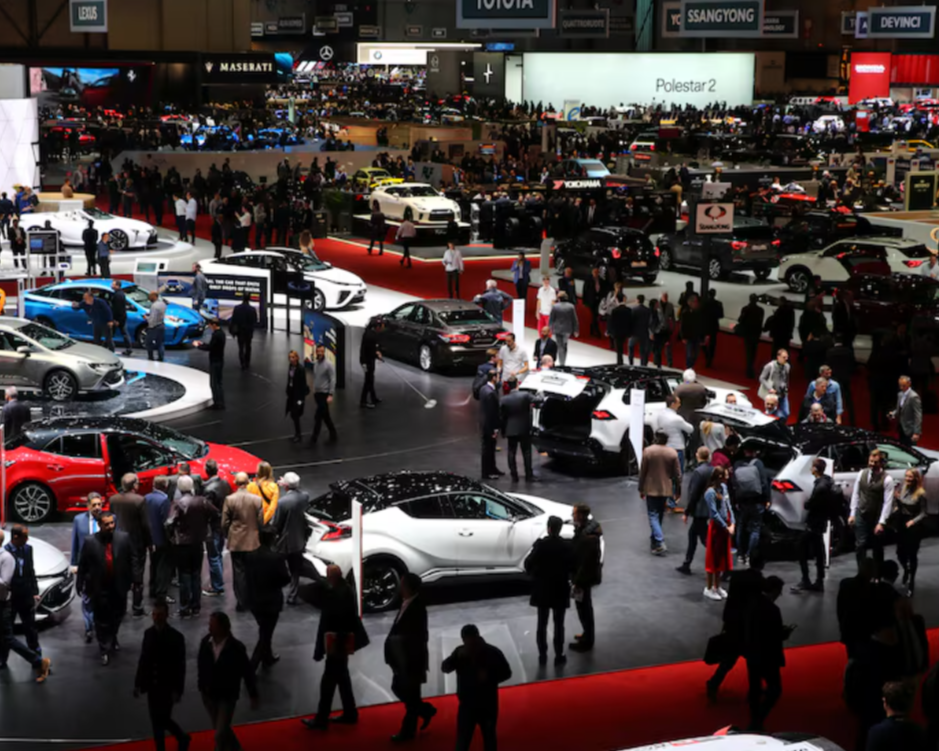The renowned Geneva International Motor Show, an annual event held in Switzerland since 1905, is coming to an end after more than a century due to waning interest and challenging market conditions, according to the organisers’ announcement on Friday. This motor show, once a staple for new vehicle launches, primarily in Europe, attracted at least 120 exhibitors at its peak.
In recent years, the Geneva event had to contend with larger and more popular shows in Munich and Beijing. Alexandre de Senarclens, the president of the Comité permanent du Salon International de l’Automobile Foundation, the organising body, described the decision to discontinue the event as “extremely regrettable.”
“However, it must be acknowledged that the lack of interest from manufacturers in the Geneva Show, coupled with the challenging industry context, competition from the favoured domestic shows in Paris and Munich, and the substantial investment required to maintain such an event, have dealt the final blow to the prospects of future editions,” he stated.
After a four-year hiatus, beginning with the cancellation of the 2020 edition due to the COVID-19 pandemic, the organisers failed to revive the show despite billing the recent spring edition as a “fresh start.” This latest edition attracted only one European carmaker, Renault, alongside several Chinese brands, and drew merely 168,000 visitors, falling short of the targeted 200,000 attendance.
Although the Geneva International Motor Show (GIMS) is bidding farewell to its longtime home in Switzerland, the event will continue its journey elsewhere. Following the 2023 edition, GIMS is set to reconvene in Qatar in 2025.
Sandro Mesquita, the CEO of GIMS, expressed confidence in the event’s future, highlighting the successful inaugural edition in Qatar and the ongoing appeal of motor shows in different regions worldwide.
“For its upcoming festival dedicated to automotive excellence, and building upon a successful inaugural edition, GIMS Qatar can confidently rely on the proven expertise and capabilities of the teams that conceived and executed the concept,” Mesquita remarked. He concluded by noting the strengthened appeal of the Geneva International Motor Show in the Middle East.
The end of the Geneva Auto Show in Switzerland marks the conclusion of an era. However, it also reflects the evolving landscape of automotive events globally. Earlier this year, the Bharat Mobility Global Expo 2024 established itself as a global convergence point for excellence in mobility in India, thanks in part to the participation of various industry associations.
The government’s initiative aimed to bring depth and credibility to the event, signaling a shift in how automotive expos are organized in India. Traditionally, each association, like SIAM with the Auto Expo, hosted its own events.
However, with the advent of Bharat Mobility, it seems the era of independent automobile expos may be coming to an end, paving the way for more unified and collaborative automotive showcases. The decision to discontinue the Geneva Motor Show stems from the recognition that market conditions in Europe are “not conducive to the success of future editions,” according to the organisers.
However, they still plan to hold the Qatar edition of the Geneva show in November 2025.



